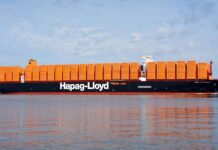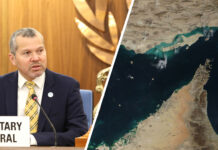The efficiency of freight transport is a key for the competitiveness of EU transport, economy, and the functioning of the internal market. This is even more so, since freight transport has increased in the EU by almost 25 % over the last 20 years and, according to the European Commission, it is projected to increase by 50 % by 2050. The European Commission recognizes this challenge and will address it through many instruments, like legislation and financial support.
This financial support offered by the European Commission will help to deliver solutions to the transport sector through the Commission’s Connecting Europe Facilities (CEF) and Horizon 2020 programmes. ESC encourages shippers to join. Depending on the topic, type of the programme, and the role the party has in a consortium, funding can be between 50 and 100% with certain rules to be followed. Below you can read more about the two programmes: CEF call and Horizon 2020.
The European Commission is addressing challenges in electronic freight information exchange in a supply chain through the Commission’s new legislative proposal and by funding projects dealing with this topic. The Commission is addressing this topic from both angles, and this is the result of the collaboration of different stakeholders in the Digital Transport and Logistics Forum (DTLF) where ESC contributed a lot.
Freight movement is accompanied by a large amount of information, which is still exchanged in a paper format and represents a significant burden for businesses, transport operators, and public authorities. The lack of a uniform legal framework at the EU level requiring authorities to accept freight transport information in electronic form as well as a fragmented IT environment are an obstacle to the simplification and a higher efficiency of communication between transport operators and their customers. For this reason, the Commission adopted a proposal for a regulation on electronic freight transport information (eFTI) as part of the Europe on the Move package. However, writing legislation is one thing, making eFTI work is another.
Just like goods need a network of roads, rail, and canals to get from A to B, electronic information needs a network as well. How such networks could look like and function has been extensively described by DTLF as well. This second result of DTLF is the concept of “Corridor Information Systems”. And exactly these Corridor Information Systems are a key subject in the Commission’s Connecting Europe Facilities project call that is out since May 2018. Interested parties are given the chance to define projects that support the development, validation, and deployment of such systems. Obviously, shippers are key to this! Together with other parties ESC is currently working on project proposals and these consortia of partners would welcome both shippers and service providers! Deadline for submitting proposals is 24 October 2018.
The CEF call is not the only opportunity to get European funding. Horizon 2020 is the biggest EU research and innovation programme ever. In the transport sector, the Commission will strive for a balanced approach in implementing the programme that considers the specifics of each mode (rail, road, waterborne, and air transport) while remaining holistic.
Making transport more sustainable (resource-efficient transport that respects the environment) and making transport and transport systems seamless (better mobility, less congestion, greater safety and security) are main priorities for transport research under Horizon 2020. The Work Programme presenting different calls for proposals for the years 2018-2020 consists of about 100 pages. Topics that could be of interest to shippers:
Main topics:
o MG-2-9-2019: Integrated multimodal, low-emission freight transport systems and logistics (Inco Flagship)
o LC-MG-1-10-2019: Logistics solutions that deal with requirements of the ‘on demand economy’ and for shared-connected and low-emission logistics operations
Other Topics:
o MG-2-6-2019: Moving freight by Water: Sustainable Infrastructure and Innovative Vessels
o ICT-08-2019: Security and resilience for collaborative manufacturing environments
o ICT-13-2018-2019: Supporting the emergence of data markets and the data economy
Shippers wanted
ESC encourages interested shippers and freight forwarders to get involved in the CEF and Horizon 2020 proposals and we will be glad to explain in more detail the opportunities offered by the European Commission and – last but not least- share the experiences ESC has with such projects. For more information, please contact k.kliuyeva@europeanshippers.eu.





